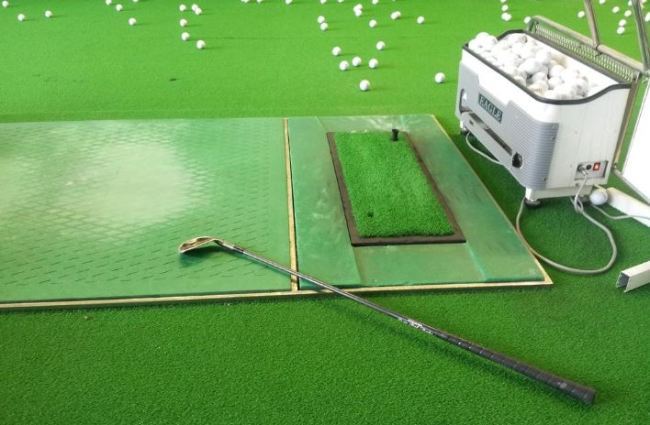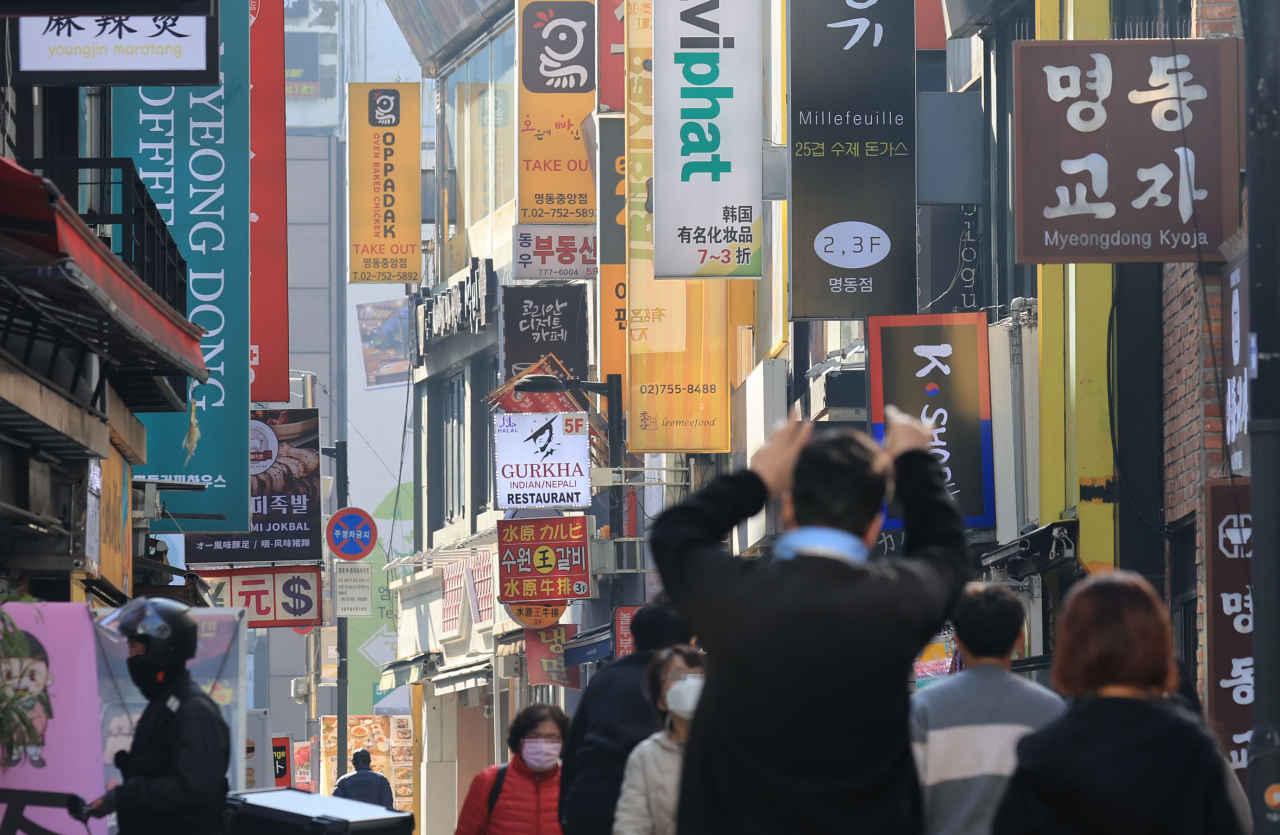 |
(Yonhap) |
Since the outbreak of the COVID-19 pandemic, outdoor sports facilities and counseling centers have enjoyed a business boom, while internet cafes and karaoke rooms struggled, fresh data shows.
According to Shinhan Card’s Big Data Lab on Tuesday, which analyzed new business openings in the January-September period in 2020 and 2021, tennis courts and outdoor golf courses saw a jump of 174 percent and 131 percent, respectively, during the nine-month period.
Golf has enjoyed explosive popularity especially since it can still be played under strict social distancing rules. The boom was also in part due to a halt in overseas golf trips, the report said.
In the restaurant sector, businesses catering to customers who dine alone surged 37 percent from the previous year.
There was a 23 percent rise in the number of eateries selling “banchan,” or Korean-style side dishes, with more people eating at home.
Restaurants selling pizza and burgers -- two popular delivery options -- increased 43 percent and 78 percent, on-year, respectively.
Sparked by the contactless trend, unmanned stores increased by a whopping 440 percent from the previous year.
With longer hours spent indoors, people looked to pets and plants to keep them company.
The number of pet shops grew 25 percent, while the number of flower shops and fish shops each went up 11 percent and 5 percent.
Many working from home also took advantage of the extra downtime to get medical procedures. The number of plastic surgery clinics that opened over the nine-month period grew 39 percent, while dermatology clinics increased 30 percent.
Two other sectors that enjoyed a business boom were shaman houses and counseling service providers, which increased by 5 percent and 25 percent, respectively, as people looked for ways to tackle their so-called coronavirus blues.
 |
People walk on a street filled with restaurants. (Yonhap) |
Among the sectors that suffered, travel agencies, bars and entertainment facilities were hit the hardest, data showed.
As many countries closed borders and banned the entry of inbound travelers, the number of travel agency offices plunged 70 percent from a year earlier.
Bars and other entertainment facilities each saw a 52 percent and 53 percent dive following the government’s gathering ban.
Buffets, family restaurants, cafeterias and food courts were also hit as fewer people gathered in public. The number of buffet restaurants decreased 63 percent, family restaurants by 48 percent and food courts by 48 percent, according to the big data lab.
Brick-and-mortar cosmetic stores also saw closures as demand for cosmetics shrank due to increased mask wearing. Cosmetics stores saw a 21 percent decline, while the number of door-to-door sales people more than halved from a year earlier, down 55 percent.
The number of PC rooms, karaoke rooms and billiard clubs dropped by 68 percent, 42 percent and 43 percent, respectively, as virus-wary customers avoided enclosed spaces.
The growth in the clothing sector, which had enjoyed a boom on online shopping platforms in the beginning of the pandemic, began to falter.
The number of clothing boutiques fell 70 percent from the previous year, while shops that sold bags and suits also slid 33 percent and 39 percent, respectively.
By Kang Jae-eun (
kang.jaeeun@heraldcorp.com)









